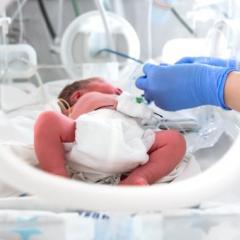Racing cars have proved to be a winning formula for University of Queensland student Hollier O’Neill in the Faculty of Medicine’s 2020 Three Minute Thesis (3MT) competition.
In the first online event of the annual competition, Ms O’Neill used a racing car engine to convey her heart transplant research in less than three minutes.
Ms O’Neill’s MD-PhD research is focused on therapeutic treatment to improve patient survival rates and quality of life after a significant heart operation.
“Despite being a phenomenal, life-saving procedure, almost one in six heart transplant recipients don’t survive the first year post-operation,” Ms O’Neill said.
To help improve these outcomes, Ms O’Neill is investigating the role of microRNA, which are small molecules that act as a form of gene expression regulation. The microRNA bind to their targets and inhibit them, and have been linked to a number of cellular functions.
“Essentially they’re like the oil in a racing car – they keep everything running and operating optimally, including in the engine - the heart,” she said.
“But, just like oil can spring a leak or require a filter, sometimes microRNA stop helping.”
MicroRNA have been linked to heart failure and transplant rejection, and could prove crucial to improving the heart transplant process.
Ms O’Neill analyses changes in microRNA expression, before, during and after heart transplant to see how these changes correlate with patient survival and quality of life.
“That’s when we can intervene, using drugs to increase the expression of microRNA, and the chances of a successful health outcome,” she said.
Ms O’Neill said she was honoured to win the Faculty final over such high-calibre students.
“It was an amazing experience, and a real credit to UQ and the other students for making it happen, despite everything that’s going on at the moment,” she said.
Runner up and People’s Choice winner was UQ PhD student Amanda Bordin, who gave a presentation on improving bacterial tests for people with cystic fibrosis.
Ms Bordin asked the online audience to practice a short breathing exercise before explaining that that’s the lived reality of the 70,000 people with cystic fibrosis worldwide. Their vulnerability to lung infections contribute to a life expectancy of only 40 years.
“The main way to treat these lung infections is with antibiotics, but it’s difficult for doctors to quickly determine which drug is best because it takes weeks for some bacteria to grow in a petri dish,” Ms Bordin said.
“Instead of growing them, I’m developing new bacterial DNA tests to help doctors choose the right antibiotics faster.”
Ms Bordin said initiatives like the 3MT competition helped bridge the gap between science and communication.
“The opportunity to come together and showcase our research has never been more important,” she said.
Ms O’Neill will now go on to represent the Faculty of Medicine at the University’s 3MT finals on 16 September.
Ms Bordin will represent the Faculty as a wild card entry at the semi-final on 27 August.
UQ’s 3MT competition cultivates students’ academic, presentation and research communication skills and increases their capacity to explain their research in three minutes, in a language appropriate to a non-specialist audience.
Media: Hollier O’Neill, hollier.oneill@uq.edu.au, +61 0458 270 254; Amanda Bordin, a.bordin@uq.edu.au, +61 7 3346 5050; Faculty of Medicine Communications, med.media@uq.edu.au, +61 7 3365 5118, +61 436 368 746.



